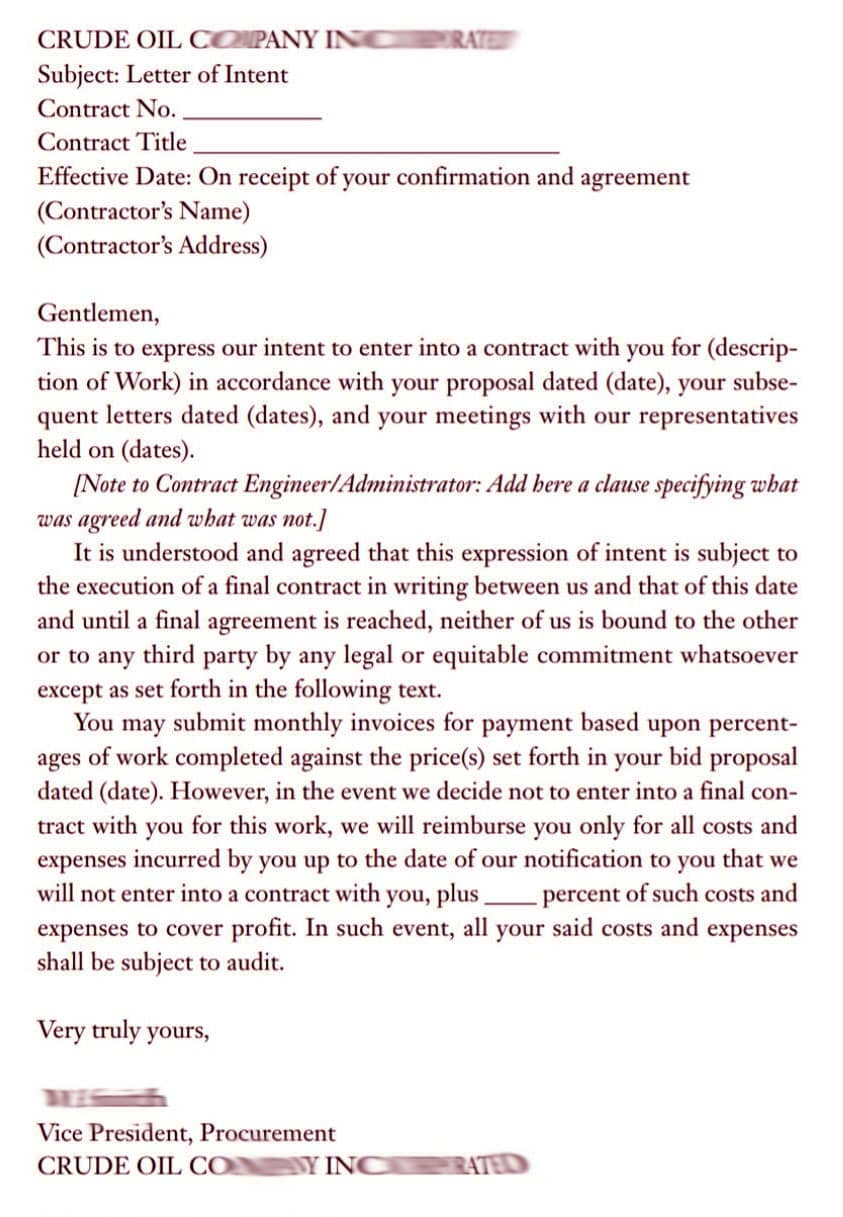Construction Contract
The oil, gas, and the energy industry common instructs and applies a duty upon its employees to observe certain policies regarding the contracting process and to maintain a high standard of ethics and fairness. All contracts are delivered in writing and are planned to carried out prior to committing work to a contractor or a contractor starting work. Enough safeguards and controls in terms of plan of action, documentation, files, reviews, and approvals are anticipated to set and maintained for all contracting activities.
Definite contracts, which are controlled by institutional terms and conditions, may introduce a third party into the accomplished agreement, namely,the engineer. This title usually refers to a consulting company who acts, among other functions, as a middle men between the client and the contractor. In these contracts, the client may be defined as the owner or employer or company but in this work we will usually refer to one party as the client and the other party as the contractor. When the letter is require to go in for another to finalize work, the contract will be made between the contractor and a subcontractor.
Fundamental Contract Documents
The construction contract is an understanding amongst the parties for the performance of work through the supply of labours and materials.
First, a well grounded contract must be enough to have a sensible meaning and before implementation, the parties must have agreed on all terms and conditions.
Second, there must also be an understanding on the compensation and on the payment terms.
Third, the contract should be in writing. A contract is not easily implementable if it remains entirely as an oral agreement and without written proof. It is worth considering that the contract of vastness in size and value - crystal clear with guaranteed safeguard against future construction disputes, and capable of being understood by all parties to the understanding probably yet to be written!
The Letter of Intent
Letters of intent should only be used in special situation and should only be issued after all contractual matters are resolved or specifically described in the letter of intent as being unresolved.

The letter of intent will be valid and agreed only if it contains, at the very least:
- verification of the client's intent to award a contract to a named contractor.
- testimonial to the scope of work in the invitation to bid.
- The pricing for the work or an invitation to submit monthly invoices based on percentages of work completed against the price quoted in the contractor's bid proposal.
- The effective date of the contract.
- Testimonial to the receipt of the contractor's agreement to the preceding
A letter of intent is defined as a contract designed for interim use only that sets forth certain agreed terms and conditions remaining to be negotiated (see the above example).

